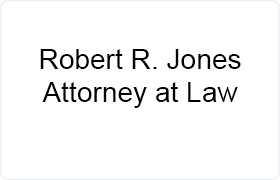Kingwood DUI-DWI Lawyer, Texas, page 3
Sponsored Law Firm
-
 x
x

Click For More Info:
-
Robert R. Jones Attorney at Law
3526 E. FM 528 Suite 204 Friendswood, TX 77546» view mapCriminal Defense Expert Representation for Reasonable Rates
If you need representation, call me 24/7.
800-883-8760
FREE CONSULTATION
CONTACTFREE CONSULTATION
CONTACTStavis Gilbreath
Construction, DUI-DWI, Corporate, Personal Injury
Status: In Good Standing Licensed: 36 Years
Donald Taylor Hueske
Oil & Gas, Energy, Industry Specialties, DUI-DWI
Status: In Good Standing Licensed: 34 Years
FREE CONSULTATION
CONTACTJonathan Stephenson
DUI-DWI, Personal Injury, Business, Mass Torts, Criminal
Status: In Good Standing
 Robert Jones Friendswood, TX
Robert Jones Friendswood, TX AboutRobert R. Jones Attorney at Law
AboutRobert R. Jones Attorney at Law Practice AreasSpecializations
Practice AreasSpecializations
